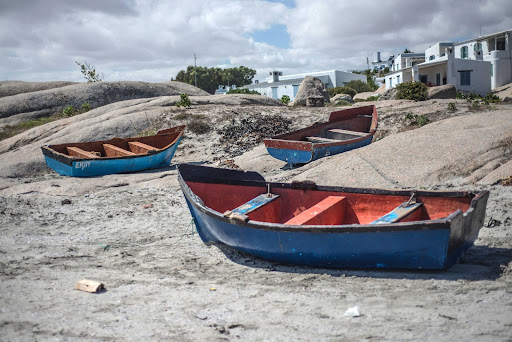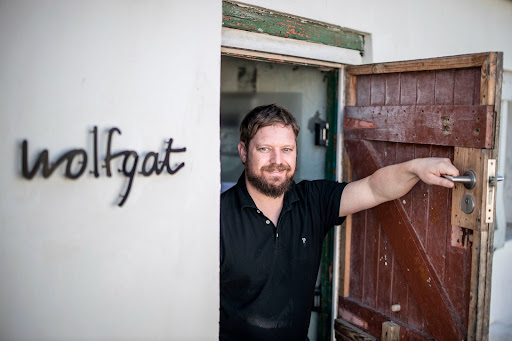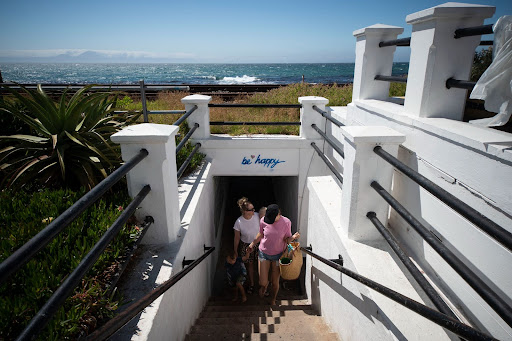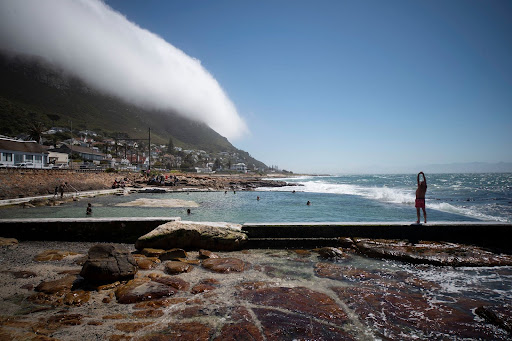In Paternoster, a sense of the old South Africa is always lurking. (Photos: Getty Images)
Darling in the Western Cape. It’s early afternoon on a Tuesday and the search for koeksisters is on.
The staff at a petrol station look at us with varying degrees of puzzlement when we ask where we can buy them. One suggests the Spar. Okay, that will do, but maybe something a bit more “authentic”?
Caps are tilted at angles and backs of heads scratched. This is the look of a people confused because they have probably been eating home-made koeksisters their entire lives. A woman’s face lights up: “There is a place … there by the other garage,” says the petrol attendant, unable to remember much more.
We pop into the Spar and pick up the two types of koeksisters they stock, just to be scientific. Reassuringly, one of the golden-brown wands does not have a label and is merely encased in cling-wrap.
We find the next garage and handbrake turn around the corner, startling a woman standing in the doorway of a take-away.
“Hi. Do you know where we can find koeksisters?” Dr Coma, the anaesthetist, asks her, a puff of Cherry Pie smoke wafting with his words.
She adopts the look of someone asked to solve the Riemann Hypothesis. Her nose crinkles, her brow furrows and she, too, considers us with the contempt of someone who has only eaten koeksisters made by the hands of blood-relatives.
“You mean Tannie Swesie’s Deli?” she asks, pointing up the road. We retreat and see the deli tucked away next to the petrol station. It’s closed on Mondays and Tuesdays.
I’m on a road-trip up to Paternoster with some bras who like to chow. Which is why we’re veering off on tangents and down dead-ends to find padstal pies (Wes Kus Padstal’s venison pie is a treat), local confectionery (toasted Basilei milk tart marshmallows) and anything else to satisfy a munchie (Darling Meat Market’s smoked tomato, bacon and cheese sausages are surprisingly excellent).
 Wolfgat is situated near the beach in Paternoster. (Photos: Mujahid Safodien/AFP/Getty Images)
Wolfgat is situated near the beach in Paternoster. (Photos: Mujahid Safodien/AFP/Getty Images)
That is what happens when you eat with this lot. Dr Coma packs Japanese knives sharper than Oscar Wilde’s wit, and will, over the course of the next few days, murder and cook some fine West Coast crayfish procured at the Paternoster waterfront. A bit of a pyromaniac, he is handy at cooking on the rented beach-house’s large indoor fire. Then there are Mr and Mrs Bear, bon vivants and epicureans both. They’re lugging along a portable braai, an Everdue by Heston Blumenthal, some wagyu beef, some fancy Japanese charcoal and several cases with wine, bubbles and whisky.
Special K has brought along a range of cannabis strains, with names like Wedding Poop, The Church, Green Crack and Cherry Pie. He is also packing some psychedelic mushrooms for a spiritual realignment during one of the sunsets at our front line rented beach-house.
The mission is to eat at Wolfgat. A restaurant that has been winning awards the past few years, including the best “off-map destination” restaurant in the world at the inaugural World Restaurant Awards in Paris in February 2019. Which means the waiting time for a booking has gone from six to eight weeks to five to six months, according to the Bears.
This is because head chef Kobus van der Merwe, an inveterate forager in the ocean, rocks and dunes in the vicinity of the 130-year-old fisherman’s cottage in which his 20-seater restaurant is based, is capturing the austere landscapes and remote beauty of this singular, salty part of South Africa on his plates. He does this with an accomplished harmony.
 Wolfgat won the best world restaurant award for its unique back-to-basics cooking. (Marco Longan/AFP)
Wolfgat won the best world restaurant award for its unique back-to-basics cooking. (Marco Longan/AFP)
On November’s seasonal menu the Abalobi “catch of the day” with spanspek, ginger, fennel, kapokbos (Eriocephalus africanus) and sea moss (Sarcothalia scutella), for example, appeared as the area’s dunes, redolent with the sparse local vegetation, and soaking in the gold-pink light of Paternoster’s sunset — only in hyper-miniature versions.
Local foraged ingredients on that day’s menu included limpet, klipkombers (Pyropia capensis), sea lettuce (Ulva fasciata), seekoraal (Sarcocomia sp), dune spinach (Tetragonia decumbens) and dune celery (Dasispermum suffriticosum).
Being raised in the warm, subtropical waters of the North Coast in KwaZulu-Natal required daily dives into the headache inducing waters of the icy-cold Atlantic where, hopefully, a mouthful of sand and water would help the palate acclimatise for Wolfgat’s clean flavours and symphonic connection to its surroundings.
It didn’t. There is no preparation for the food Van der Merwe serves. There are other parts of Paternoster that are more difficult to capture on a fine-dining menu, which is so essentially about space and place. Like the socioeconomic chasm that exists between the haves and the have-nots.
 Naturally: Chef Kobus van der Merwe forages for ingredients such as seaweed, succulents and berries to use in his restaurant. (Photo: Marco Longan/AFP)
Naturally: Chef Kobus van der Merwe forages for ingredients such as seaweed, succulents and berries to use in his restaurant. (Photo: Marco Longan/AFP)
Paternoster’s poor fishing community live in the centre of the old village, sandwiched between the ocean-front luxury holiday homes that fan out on either side of it. The village is gentrifying and the old fisherfolk are being squeezed out, to RDP homes and other areas on the margins of the village.
Unemployment is rife. Likewise a sense that the old South Africa is never far away here. This becomes most confrontational when the picture of the Voortrekker Monument over my guest-house bed starts to swirl and contort with the ugly, psychedelic energy of a revered fascist past.
In a house otherwise professionally decorated with anodyne marine-themed guff, mine is the only room with the personal touch. In a corner of the room are separate sepia photographs of the family matriarch and patriarch. She is pictured on a beach holiday somewhere in the 1940s or 1950s. It seems more temperate than Paternoster. He is pictured in front of a bank of cars. In the background the Voortrekker Monument towers over him — it must be a rally at a time in South African history when fascism and Nazism was gaining momentum.
Over the bed the picture of the monument has primacy in the middle. On one side it is flanked by a photo of a young child, on the other by the Young Nazi with his future wife and her friend. They seem carefree, enjoying life during the days when apartheid was being formulated, codified and mainstreamed.
I wonder why the owners would choose to present this version of themselves to their guests? Guests who are probably mainly foreign or South African, white and rich, like the owners, presumably. Property here is not cheap.
I wonder how many black guests have been traumatised by this room and its contents. I think, too, about the constant refrain of “we didn’t know” about apartheid, which is bleated out often by sections of South Africa’s white population.
Paternoster, like the country, has flavours that are difficult to swallow.
A day at the Dalebrook Tidal Pool – St James
 The entrance to Dalebrook Tidal Pool. (Photos: David Harrison)
The entrance to Dalebrook Tidal Pool. (Photos: David Harrison)
If you go down the M4 Main road past Muizenberg and stop at the Dalebrook Tidal Pool, you may be in for a surprise.
Always on ‘best tidal pools in Cape Town’ lists, Dalebrook, just before Kalk Bay, is still often overlooked somehow. So don’t drive past this little gem and its parking area with a car guard wielding a rainbow coloured umbrella.
‘Be Happy’ is painted above a subway entrance transporting you to the rock pool and adjoining beach where you’ll find families with young children exploring the rocks and swimmers doing lengths. If they find that too confining, they jump off the tidal pool’s low ocean wall as waves crash over at high tide, before baking themselves warm on the sandstone.
 A swimmer stretches before diving off the tidal wall at Dalebrook.
A swimmer stretches before diving off the tidal wall at Dalebrook.
Claire Homewood and members of the CareCreative, along with renowned graffiti artist Mak1one, have collaborated to paint several species of shark found off the coast on the Dalebrook beach wall for the Save Our Seas Foundation Shark Education Centre located directly across the road.
In a different scene, Khoisan Chief Bi’a #Nu//nuisib Kingsley sits in the sand, tightly clasping a small mollusc shell in his hands, he presses it to his lips, blowing a continuous high note into the wind before offering a blessing to the air, water and land.
If you plan on visiting Dalebrook, be sure to get there in the morning to enjoy the sun as the sacred Kalk Bay mountain starts to cast its shadow over Dalebrook from mid-afternoon. – David Harrison
Cape Town’s gamechangers
Surplus Radical Bookshop, 302 Albert Road, Woodstock.
A few months ago, leftwing activist and former Hanover Park teacher Andre Marain opened this pop-up to downsize what appears to be a vast collection of left-wing literature.
It’s a treasure-trove of hard-to-find and out-of-print literature, like The Red Years – Forbidden Poems form Inside North Korea; A Documentary History of Indian South Africans edited by Surendra Bhana and Bridglal Pachal; Mark Gevisser’s essential collection of Mail & Guardian profiles of various South Africans during the transition from democracy, Portraits of Power, and James Matthews poetry collection, Flames & Flowers. The books appear to be very randomly priced with “lucks” like a first-edition collection of poetry by Fernando Pessoa going for a measly R10.
The walls have South African struggle posters from the 1980s alongside Brett Murray prints and nods to intellectual luminaries like CLR James, Frantz Fanon and Malcolm X. In the mini-shrine to Muhammad Ali I found a copy of Mike Marqusee’s Redemption Song, a book about the great boxer’s politics which I have been looking for for years.
For more information, call 083 886 7164 or email: [email protected]
The Blue Room @ Grub And Vine
Newly opened in the former Red Bull recording studios at 103 Bree Street, the swish cocktail bar and live music venue has a lot going for it: excellent acoustics, banging cocktails and a menu from chef Matt Manning.
But its holiday musical line-up, programmed by saxophonist and Cape Town jazz mainstay Buddy Wells that really takes the breath away. There are jam sessions every Thursday evening from 7.30pm onwards.
The Blue Room is open for lunch from Monday to Friday, brunch on Saturdays and tapas and cocktails at night. Wells is also setting up the recording and rehearsal studio space at the venue.
For updates, visit grubandvine.co.za/events/the-blue-room/ or @theblueroomct on Instagram.
– Niren Tolsi